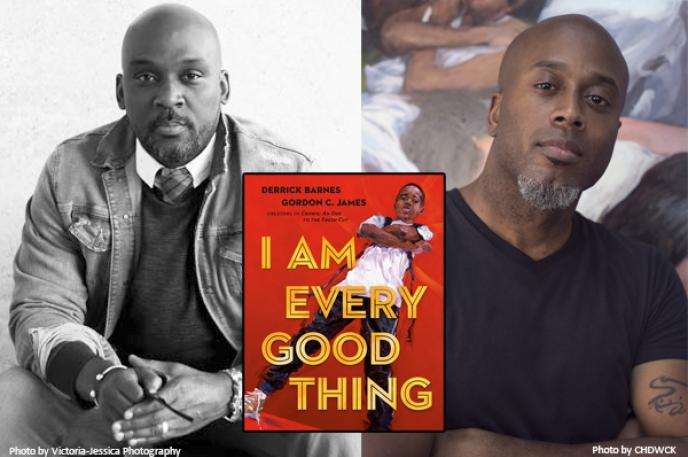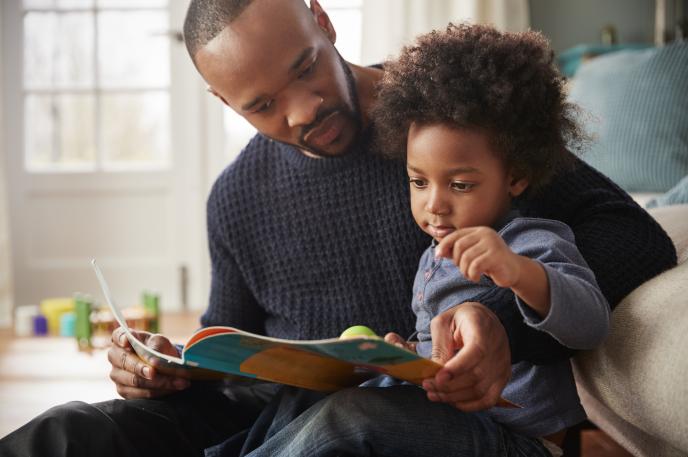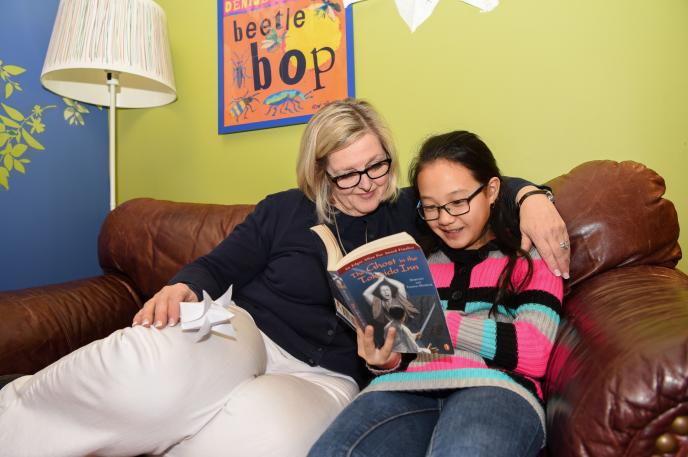Sometimes, love is all you need. Luckily, Charlotte Mecklenburg Library has you covered. This February, Myers Park Library Leader Harold Escalante, discussed titles on the theme of love with WCNC Charlotte Today's Beth Troutman. Whether you are interested in reading about self-love and personal development, familial or platonic love, there's enough to go around for everyone.
Explore the All You Need is Love book list in the library catalog
Watch the "Good Reads in February" Charlotte Today segment
ADULT NONFICTION
Everything Beautiful in it’s Time by Jenna Bush Hager
In this charming memoir, Bush Hager (Sisters First), cohost of Today with Hoda & Jenna, pays tribute to her prominent family, particularly her grandparents. Bush Hager describes growing up in two presidential families: when she and her twin sister were toddlers, they "got in trouble" when Secret Service agents rescued them from a 10-foot seawall after they'd escaped from their cribs while visiting the Maine home of their grandfather, "Gampy" - President George H.W. Bush. Bush Hager's memoir is rife with charming anecdotes: dancing in her prom dress with her father (President George W. Bush) after her date jilted her, discussing books and cats with her "southern lady" mother, Laura, and squabbling with her beloved sister Barbara (the author might punch, but her twin had "strong nails and wasn't afraid to use them"). Bush Hager recounts the period in which she lost both Bush grandparents, as well as her namesake Jenna Welch ("She wasn't loud and she didn't boast, but she was proud of her life and her family"). She also paints a vivid picture of strong and devoted matriarch Barbara Bush ("More than once, I have looked at my grandmother and thought, “This woman is invincible"). This endearing memoir brings readers deep into the heart of a family that many may feel they already know well. Bush's fans will delight in these intimate, funny remembrances.
Postcolonial Love Poem by Natalie Diaz
In this exquisite, electrifying collection, Diaz (When My Brother Was an Aztec) studies the body through desire and the preservation of Native American lives and cultures, suggesting that to exist as a Native in a world with a history of colonization and genocide is itself a form of protest and celebration. She explores this idea in "The First Water Is the Body," cataloguing the destruction of this invaluable resource by those who seek to protect it: "in the U.S., we are tear-gassing and rubber-bulleting and kenneling natives trying to protect their water from pollution and contamination at Standing Rock." But it's desire, both in its erotic form and as present in the will to assimilate, that drives the book: "Like any desert, I learn myself by what's desired of me/ and I am demoned by those desires." "These Hands, If Not Gods" opens with a stunning lyrical address to a lover: "Haven't they moved like rivers/ like glory, like light/ over the seven days of your body?" The elegiac "Grief Work" closes the book with a meditation on longing: "my melancholy is hoofed/ I, the terrible beautiful/ Lampon, a shining devour-horse tethered at the bronze manger of her collarbones." Diaz continues to demonstrate her masterful use of language while reinventing narratives about desire.
Daring Greatly by Brene Brown
Researcher and speaker Dr. Brene Brown offers an all-embracing new philosophy that provides encouragement to dare greatly: to embrace vulnerability and imperfection, to live wholeheartedly and to courageously engage in life, whatever it brings. Dr. Brown challenges preconceived ideas about vulnerability. Based on twelve years of research, she argues that vulnerability is not weakness, but rather the clearest path to courage, engagement and meaningful connection.
ADULT FICTION
How to Keep a Secret by Sarah Morgan
What do we know of the secrets our loved ones hold and why? Sisters Lauren and Jenna have kept the frightening events of a stolen afternoon hidden from everyone since their childhood. Lauren, married to successful London businessman Ed, prepares an elaborate 40th birthday celebration for him. After a testy morning conversation with Ed that includes a cryptic comment from him and an exchange with moody 16-year-old Mack, the day goes without a hitch - except Ed is a no-show at the party. Jenna, married to the small-town boy next door, is struggling with getting pregnant and keeping that from Lauren and their mother. Nancy, the matriarch, widowed five years ago, is crumbling under the things she's keeping from both of her daughters. Secrets have a way of unraveling. Over a long Martha's Vineyard summer, all four Stewart women face the destruction of long-held beliefs and betrayals.
The Saturday Night Supper Club by Carla Laureano
When Alex Kanin posts an online editorial underscoring the pitfalls of online criticism, it goes viral and inadvertently leads to Denver chef Rachel Bishop losing her job. Alex offers her an opportunity to display her cooking skills at a series of exclusive pop-up Saturday night dinner parties for Denver's elite. Neither expects to fall in love while trying to restore Rachel's professional reputation and revive Alex's flagging career, yet that is exactly what happens.
This well-written modern romance with a strong female professional protagonist will appeal to those interested in romance, personal growth and the food/restaurant industry. Romance aficionados and fans of stories about overcoming obstacles and the role of faith in everyday life will eagerly await the next entry in this sweet food-centered series.
A Duke in the Night by Kelly Bowen
When disreputable duke and businessman August Faulkner comes back into her life, headmistress Clara Hayward is tempted to pick up where they left off ten years ago, despite worrying that he aims to take over her family's business.
Young Adult (YA)
My So-Called Bollywood Life by Nisha Sharma
Winnie (Vaneeta) Mehta and her family are obsessed with a prophecy from an Indian priest about the New Jersey teen's romantic future. They believe she's destined to marry Raj, her longtime boyfriend and childhood friend. But over the summer, Raj hooked up with another girl, and he no longer shares her Bollywood filmmaking dreams either-even more of a betrayal to Winnie than the cheating. The fallout from their breakup is vast: not only does Winnie get pushed out from helping with the school's annual film festival, but she has to get a job to pay back Raj after a misguided, post-breakup stealing incident. Winnie's new position at a local art house puts her in the orbit of Dev, a classmate who loves the cinema as much as Winnie. Sharma's YA debut is filled with upbeat, third-person prose, and quirky, Bollywood-focused details: in recurring dreams, Winnie is visited by actor Shah Rukh Khan, who gives her life and love advice, and each chapter begins with a Bollywood movie review and rating written from Winnie's review blog. The romance that blossoms between Winnie and Dev is sweet, if predictable, creating a satisfying story with a layer of dramatic intrigue offered through Winnie's genuine concern over whether her fate is predetermined or of her own design.
Seize Today by Pintip Dunn
The third book in the New York Times bestselling series is a thrilling conclusion to an epic trilogy. Seventeen-year-old Olivia Dresden is a precognitive. Since different versions of people's futures flicker before her eyes, she doesn't have to believe in human decency. She can see the way for everyone to be their best self - if only they would make the right decisions. No one is more conflicted than her mother, and Olivia can only watch as Chairwoman Dresden chooses the dark, destructive course every time. Yet Olivia remains fiercely loyal to the woman her mother could be. But when the chairwoman captures Ryder Russell, the striking and strong-willed boy from the rebel Underground, Olivia sees a vision of her own imminent death...at Ryder's hand. Despite her bleak fate, she rescues Ryder and flees with him, drawing her mother's fury and sparking a romance as doomed as Olivia herself. As the full extent of Chairwoman Dresden's gruesome plan is revealed, Olivia must find the courage to live in the present - and stop her mother before she destroys the world. The Forget Tomorrow series is best enjoyed in order. Reading Order: Before Tomorrow (Prequel), Forget Tomorrow, Remember Yesterday and Seize Today.
CHILDREN
Going Down Home with Daddy by Kelly Starling Lyons
In a lushly illustrated tribute to family history, an African American boy and his family take their annual trip to his great-grandmother's farm for a reunion. The pivotal event is a family celebration during which each individual performs. Lil Alan's cousins have their presentations prepared - one cousin will read a Langston Hughes poem and another will share a scrapbook "in Granny's favorite color blue." Alan, though, is stumped: "I kick a stone and my eyes start to burn." But as he internalizes the energy of the farm, tastes "love-made dishes," and enjoys family, the words come: "Cotton for the quilts Granny made to keep her children warm... A pecan for the trees Pa planted and all the kids love to climb." Lyons's image-rich prose and Minter's powerful acrylics - rendered in shadowy blues and fiery shades - convey a sense of historical struggle alongside cherished tradition while capturing the experience of performance jitters.
Bear Came Along by Richard T. Morris
What begins as a solo log ride down a river for Bear turns into a group adventure as new forest animals join the pileup hurtling through the water. Each has a different approach to the wild ride: the turtles worry about what could go wrong, while the raccoons delight in the "twists and turns." All are surprised, though, when they realize where they're headed: a waterfall, which, after a dramatic plunge, lands them in a calm, communal pool. Text by Morris (Fear the Bunny) bounces along with appealing repetition and rhythm, but it's cleverly designed illustrations by Pham (Stop That Yawn!) make this offering a standout choice for reading aloud. Varying perspectives amplify both the drama and the humor, particularly in wordless scenes that move from the vertiginous animals'-eye-view to their comically shocked faces to an aerial image that emphasizes how far the drop will be. And the forest's gradual color shifts, from muted grays to the brilliant hues in the final scene, echo the story's underlying message: connecting with others makes life richer, more vibrant and a lot more fun.
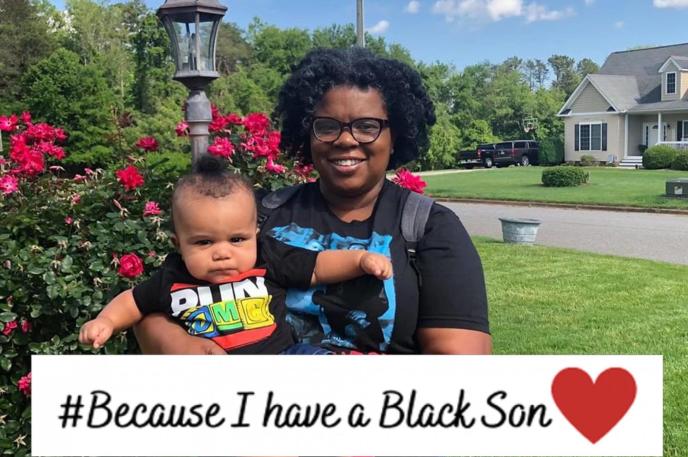

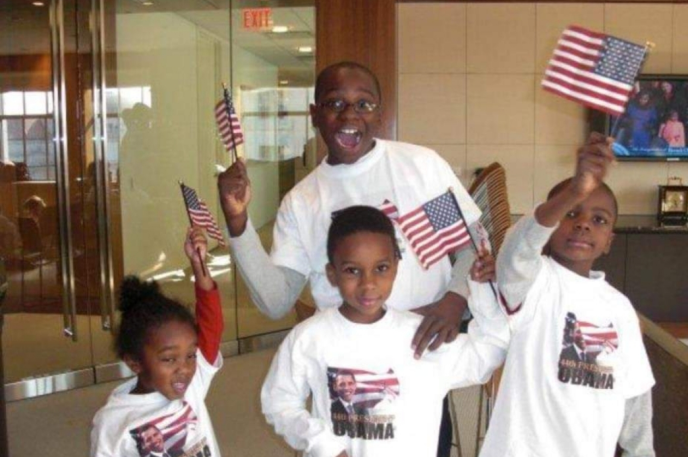

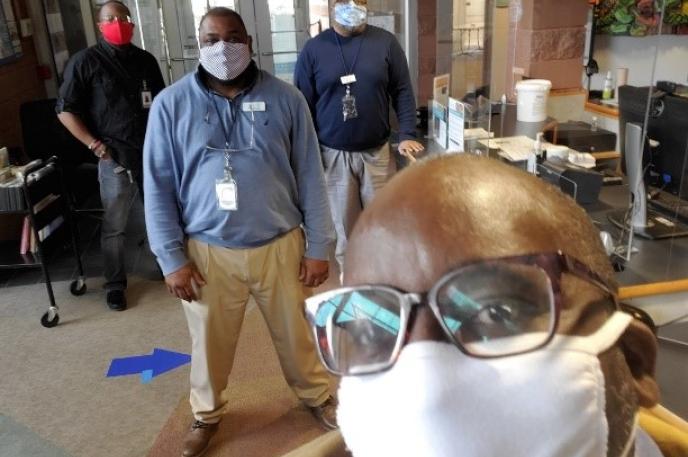
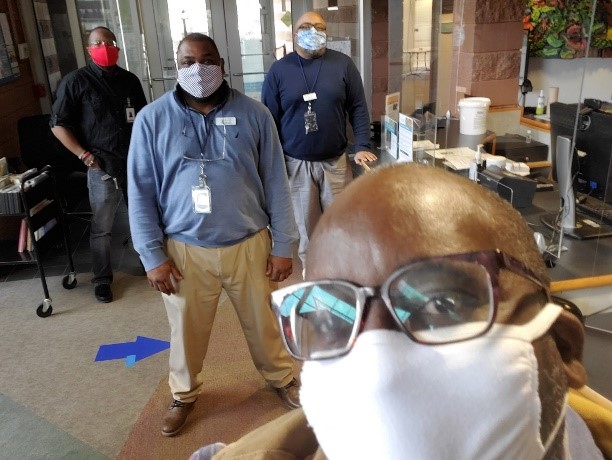
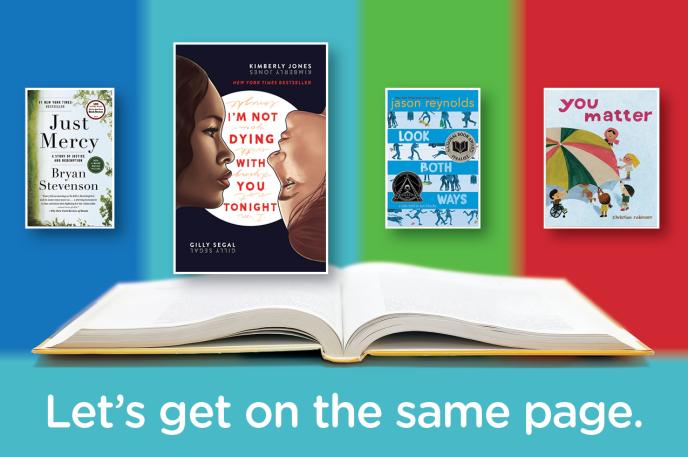

 Turner’s three decades of experience includes 10 years at SPL, where he led and managed a system of 27 libraries, including the world-renowned and iconic Central Library, a staff of 679 and more than 500 volunteers. He brings comprehensive experience at every level of system, program and community engagement management of public libraries. Turner is also a highly regarded speaker and guest lecturer, sharing his views and vision on the future of libraries at local, state, national and international library conferences and universities. Turner earned his master’s degree in library science from the University of Tennessee and a bachelor’s degree from Mississippi University for Women.
Turner’s three decades of experience includes 10 years at SPL, where he led and managed a system of 27 libraries, including the world-renowned and iconic Central Library, a staff of 679 and more than 500 volunteers. He brings comprehensive experience at every level of system, program and community engagement management of public libraries. Turner is also a highly regarded speaker and guest lecturer, sharing his views and vision on the future of libraries at local, state, national and international library conferences and universities. Turner earned his master’s degree in library science from the University of Tennessee and a bachelor’s degree from Mississippi University for Women. 